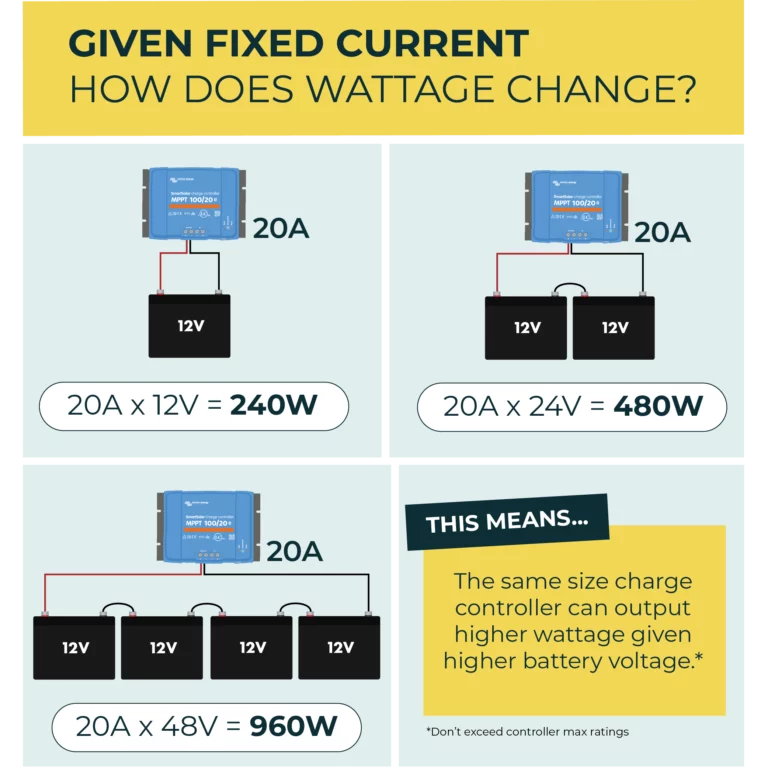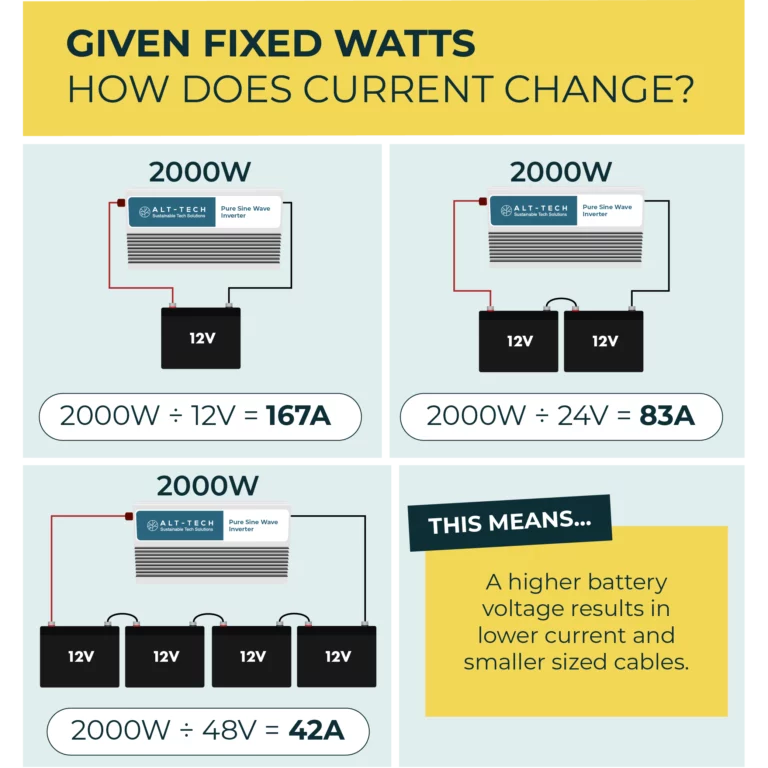Your cart is currently empty!
What are Watts?




Watts are a unit of power.
Power is defined as the instantaneous amount of energy delivered to a load. Watts should not be confused with watt-hours or kilowatt-hours. Watt hours are a measure of energy storage, which is a different topic to be covered in the future.
Power (Watts) = Volts (V) * Amps (A)
Lets consider a 10A draw from different battery voltages:
12V battery delivering 10A results in 120W of power.
24V battery delivering 10A results in 240W of power.
48V battery delivering 10A results in 480W of power.
Lets now consider a 2000W load and different battery voltages:
2000W load on a 12V battery will result in a current draw of 167A.
2000W load on a 24V battery will result in a current draw of 83A.
2000W load on a 48V battery will result in a current draw of 42A.
Sometimes running a higher battery voltages can have benefits.
– Being able to use smaller cables to run the same load
– Sometimes being able to use smaller devices to charge the same battery
It is important to consider ALL factors when selecting a battery voltage. Higher voltage batteries are not always better, consider your use case and needs before deciding.
Disclaimer: ALWAYS remember to check your device’s specifications to ensure you don’t damage it by exceeding its capabilities.
Leave a Reply
You must be logged in to post a comment.